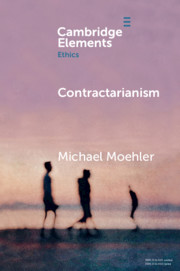Refine search
Actions for selected content:
18 results
International Reputation Costs and Assurances: A Case of East Asia
-
- Journal:
- Journal of Experimental Political Science , First View
- Published online by Cambridge University Press:
- 11 June 2025, pp. 1-12
-
- Article
-
- You have access
- Open access
- HTML
- Export citation
Exploring the legitimacy of industry-led farm animal welfare governance using examples of Canadian and United States dairy standards
-
- Journal:
- Animal Welfare / Volume 34 / 2025
- Published online by Cambridge University Press:
- 31 March 2025, e22
-
- Article
-
- You have access
- Open access
- HTML
- Export citation
Risk management in the era of data-centric engineering
-
- Journal:
- Data-Centric Engineering / Volume 6 / 2025
- Published online by Cambridge University Press:
- 20 February 2025, e15
-
- Article
-
- You have access
- Open access
- HTML
- Export citation
‘We need allies and collective security’: How the end of the Second World War caused multilateralism in Europe and bilateralism in Asia
-
- Journal:
- European Journal of International Security , First View
- Published online by Cambridge University Press:
- 13 February 2025, pp. 1-21
-
- Article
-
- You have access
- Open access
- HTML
- Export citation
7 - Fundamentalist Experience
-
- Book:
- Ways of Living Religion
- Published online:
- 07 March 2024
- Print publication:
- 14 March 2024, pp 269-305
-
- Chapter
- Export citation
Chapter 26 - Laudianism, Puritanism and Arminianism Revisited
- from Part IV - Laudianism and Predestination
-
- Book:
- On Laudianism
- Published online:
- 05 October 2023
- Print publication:
- 19 October 2023, pp 353-359
-
- Chapter
- Export citation
4 - Family Business and Its Management
-
- Book:
- Entrepreneurs in Contemporary China
- Published online:
- 24 August 2023
- Print publication:
- 07 September 2023, pp 75-97
-
- Chapter
- Export citation
Chapter 9 - Conclusion
-
- Book:
- Atheists and Atheism before the Enlightenment
- Published online:
- 06 July 2023
- Print publication:
- 27 July 2023, pp 178-189
-
- Chapter
- Export citation
Chapter 1 - Introduction
-
- Book:
- Atheists and Atheism before the Enlightenment
- Published online:
- 06 July 2023
- Print publication:
- 27 July 2023, pp 1-32
-
- Chapter
- Export citation
23 - Patriotism and Democratic Education
- from Part Three - Key Topics and Concepts
-
-
- Book:
- The Cambridge Handbook of Democratic Education
- Published online:
- 20 April 2023
- Print publication:
- 27 April 2023, pp 377-394
-
- Chapter
- Export citation
17 - Reporting, Materiality and Corporate Sustainability
- from Part III - Corporate Sustainability: Processes
-
-
- Book:
- Corporate Sustainability
- Published online:
- 09 March 2023
- Print publication:
- 30 March 2023, pp 334-369
-
- Chapter
- Export citation
Chapter 12 - The Three Theological Virtues
- from Part II - Shakespeare’s Virtues
-
-
- Book:
- Shakespeare and Virtue
- Published online:
- 19 January 2023
- Print publication:
- 26 January 2023, pp 125-136
-
- Chapter
- Export citation

Contractarianism
-
- Published online:
- 24 January 2020
- Print publication:
- 13 February 2020
-
- Element
- Export citation
Epistemic buck-passing and the interpersonal view of testimony
-
- Journal:
- Canadian Journal of Philosophy / Volume 48 / Issue 2 / 2018
- Published online by Cambridge University Press:
- 01 January 2020, pp. 178-199
-
- Article
- Export citation
Sustainability assurance and assurance providers: Corporate governance determinants in stakeholder-oriented countries
-
- Journal:
- Journal of Management & Organization / Volume 23 / Issue 5 / September 2017
- Published online by Cambridge University Press:
- 12 January 2017, pp. 647-670
-
- Article
- Export citation
Part X - Religion
-
-
- Book:
- The Cambridge Guide to the Worlds of Shakespeare
- Published online:
- 17 August 2019
- Print publication:
- 21 January 2016, pp 681-760
-
- Chapter
- Export citation
94 - Atheism
- from Part X - Religion
-
-
- Book:
- The Cambridge Guide to the Worlds of Shakespeare
- Published online:
- 17 August 2019
- Print publication:
- 21 January 2016, pp 726-731
-
- Chapter
- Export citation
Remotely Piloted Air Systems on Trial and in Operations
-
- Journal:
- The Journal of Navigation / Volume 64 / Issue 1 / January 2011
- Published online by Cambridge University Press:
- 26 November 2010, pp. 1-14
- Print publication:
- January 2011
-
- Article
- Export citation
